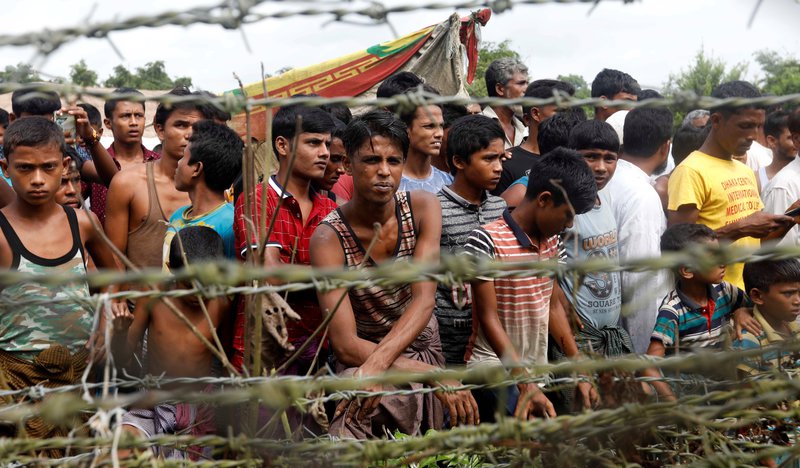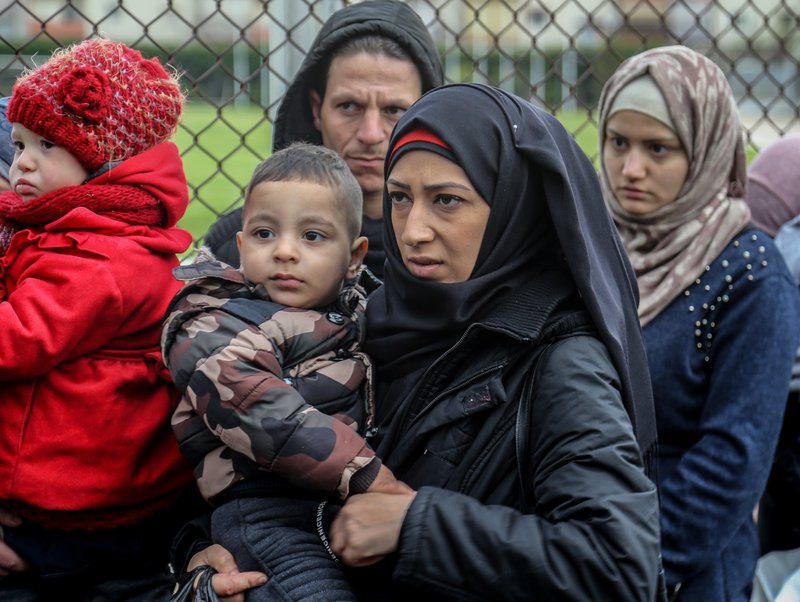The hardest journey
A record number of 70 million people have been forced to flee their homes in recent years on account of long-term conflicts, persecution and the effects of climate change
Every two seconds someone is forced to flee their home. This is the figure given by the UNHCR (United Nations High Commissioner for Refugees), which estimates that some 70 million people have been displaced during the current humanitarian crisis. It all amounts to one of the largest exoduses in human history. Wars are the main reason for the crisis, but many people are also fleeing violence and hunger, and increasingly the effects of climate change.
“The Sahara Desert expands by a metre every day. The people who live in the region of Sahel are moving to countries in West Africa, such as Ivory Coast, Benin and Nigeria,” says Miguel Pajares, the head of CEAR, Catalonia’s refugee aid commission. “I fear that the number of refugees in the world will not stop growing,” he adds.
The ever-rising figures are above all due to the continuation of armed conflicts that have been going on for some time, such as those in Columbia, Afghanistan, the Democratic Republic of the Congo, but also those of more recent origin, such as those in South Sudan and Myanmar. The war in Syria, however, is the paradigmatic case. It is estimated that after eight years of war almost 6.5 million people have already abandoned the country, with another 6.2 million people forced to flee their homes and now amassed on the country’s borders.
The political and social crisis in Venezuela has also led to an exodus in recent years, with tens of thousands of people applying for asylum in countries like the US, Spain and Peru. The UNHCR estimates that some four million people have left the country. Afghanistan is another of the main countries in the world contributing refugees, despite it no longer being at open war. Nevertheless, 2018 was a year marked by violence, and the Central Asian country ranks second among countries with highest number of refugees.
Meanwhile, the humanitarian crisis in Myanmar is ongoing as a result of the persecution of the Rohingya people, a Muslim minority in a Buddhist country. Despite the talks taking place to allow people who have fled to return, the reality is that most of them remain in refugee camps in Bangladesh.
For the fourth consecutive year, Turkey is the country hosting the most refugees, some 3.5 million, followed by Pakistan and Uganda (1.4 million each). Among the leading 10 countries hosting refugees, there is only one European country: Germany, which occupies sixth position, with 970,400 people seeking sanctuary. For Pajares, it is a fact worth highlighting. “The European Union shoulders much less of a burden than the places we should be supporting,” he says. “In fact, only 15% of refugees are from the industrialised north. When people are forced to flee their homes, they most often go to a neighbouring country,” he adds. For yet another year, it is the poorest countries that receive the most refugees, some 85% of the total, an increase on the numbers for 2016 (84%).
Resettlement programme
CEAR continues to point out that there are few safe legal avenues for gaining international protection, and the organisation proposes a resettlement programme. “It should be possible to apply for political asylum at an embassy, but not in the way it is done now, in which you have to step foot in the country to be able to apply. That way safe avenues could be established, and people would not have to risk their lives just to apply for asylum,” says Pajares.
The CEAR head is also critical of the policy some European countries have adopted of returning Afghans to their country now that the war has officially ended. “Since 2014, the war has been declared over, but it is clear there is still a lot of violence. Most people who have returned home have not been able to go back to their villages,” he says.
The fear of reprisals and violence is also one of the main reasons why people flee South American countries such as Honduras, Guatemala and El Salvador. “In this case, it is not due to political motives, but rather the violence of different organisations,” Pajares explains. Such is the case of the criminal gangs known as ’maras’.
It all adds up to a complex global scenario, involving long-term conflicts and the threat of climate change, which is leading millions of people to leave their homes, and for the moment there are few signs of the crisis being resolved. “Unfortunately, the flow of refugees will not stop in the next few years,” Pajares warns.
feature




